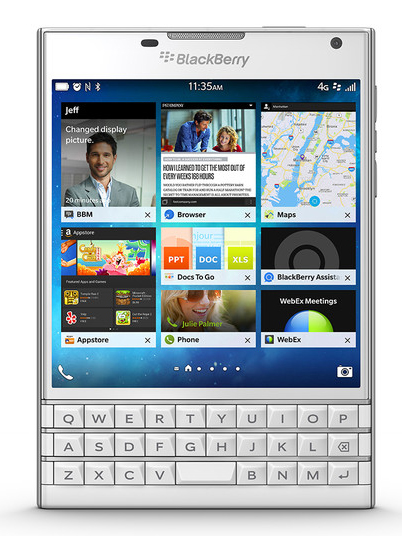

Blackberry is betting big on their new line of smartphones, headlined by the Passport. It bears a resemblance to the Bold, but with a larger screen and a more intuitive keyboard. The Waterloo company is also winning back corporate clients who are disenchanted with the entire concept of bring your own device.
One of the big concerns over Blackberry and the primary reason many corporations have switched away was due to the app ecosystem. Many of the top apps like SalesForce and Teamviewer do not have native apps and these are essential to doing business. In order to win back customers Blackberry signed a new agreement with Amazon to bundle their phones with the Amazon Appstore, as the primary destination to download content. This will open up the availability of a wider selection of apps and make it easier for your average user to install what they want, without having to sideload anything.
At a well-known investment firm in New York City, something strange is happening: Mobile app performance issues and privacy concerns have sparked a Bring Your Own Device (BYOD) revolt, and now many employees are asking for their corporate BlackBerry back. “It’s a nightmare,” says an IT executive speaking on condition of anonymity.
Battery draining, stress on the corporate servers from many different devices are hindering app updates and providing security. “Things like this drove a wedge between IT and the users,” says the IT executive. “We became Big Brother. Everyone was convinced that we were doing this because we wanted to see what the hell they’re doing. In reality, it’s all about protecting the data.”
There is a movement now to step away from Android, iOS and Windows and embrace Blackberry once more. BlackBerry’s new BES10 and soon to be BES12 really takes care of many issues I.T departments are having now. Blackberry Balance helps segregate the work and personal life and new firmware updates will make them more viable.
Michael Kozlowski is the editor-in-chief at Good e-Reader and has written about audiobooks and e-readers for the past fifteen years. Newspapers and websites such as the CBC, CNET, Engadget, Huffington Post and the New York Times have picked up his articles. He Lives in Vancouver, British Columbia, Canada.
